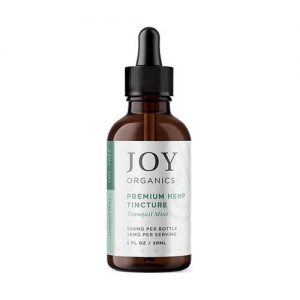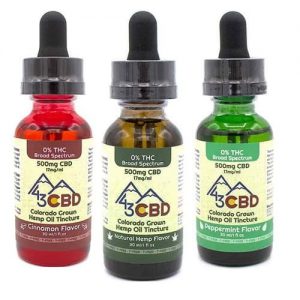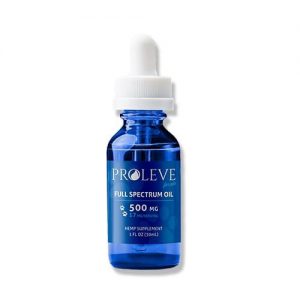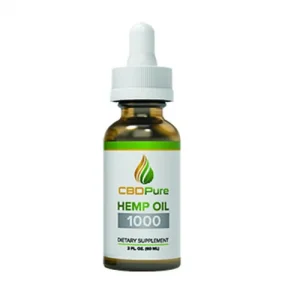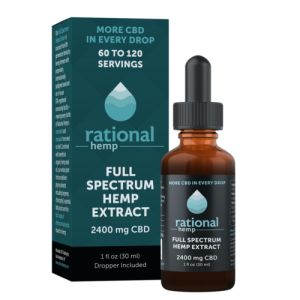Post-traumatic stress disorder (PTSD) is an anxiety disorder caused by experiencing or witnessing traumatic events such as war, abuse, car accidents, and more. The symptoms of PTSD can include flashbacks, night terrors, and severe anxiety attacks.
In the past decade, researchers have begun to uncover a connection between marijuana and cannabinoids and their potential benefits in treating symptoms of PTSD.
Additionally, recent studies indicate that cannabidiol (CBD), one of the most prevalent active ingredients in the cannabis plant, has had great success treating patients with epilepsy who do not respond to traditional treatment methods.
What is PTSD?
Post-traumatic stress disorder (PTSD) is a mental health condition that can occur after experiencing or witnessing a traumatic event. Symptoms may include flashbacks, nightmares, anxiety, depression, and feeling disconnected from others.
Some people with PTSD may also experience physical symptoms such as sweating, heart palpitations, and difficulty sleeping. Exposure therapy, medication, and psychotherapy are all treatments for PTSD that have been shown to be effective in reducing the severity of symptoms.
However, many people with PTSD find relief by using medical marijuana and cannabidiol (CBD). In states where it is legal, patients with PTSD often use medical marijuana in order to reduce their anxiety levels.
The main active chemical found in cannabis – tetrahydrocannabinol (THC) – causes an increase in appetite, relaxation, pain relief, and an improvement in overall mood. Many people who suffer from post-traumatic stress disorder say that smoking cannabis calms them down when they are anxious or stressed out.
When cannabinoids enter the body, they bind to cannabinoid receptors in various places throughout the body and brain. Cannabinoid receptors help regulate neurotransmitters like serotonin, dopamine, GABA, glutamate, and endocannabinoids which help modulate how we respond to stressful situations.
What are other available treatments for PTSD?
There are a number of different treatments available for PTSD, but not all of them are effective for everyone. Some people may benefit from therapy, while others may find medication to be more helpful.
Some people may also find that a combination of both is best. There is no one-size-fits-all solution, so it’s important to work with a mental health professional to figure out what will work best for you.
The same is true for medical marijuana and CBD, which can be used as an alternative treatment for many conditions including PTSD. For some people, these may help lessen the severity of symptoms or help you cope with triggers better than other options.
One study found that those who were given medical marijuana reported feeling less stress, anxiety, or depression than those who were given placebos. The study found that these feelings continued even after their use of medical marijuana had ended.
As a result, they felt more optimistic about their lives in general. Another study found that those who were given CBD showed fewer signs of hyperarousal (anxiety) following chronic trauma exposure.
They also had lower levels of inflammation in the brain – which has been linked to neurodegenerative diseases like Alzheimer’s and Parkinson’s disease – than those who were not treated with CBD.
What makes this a promising treatment option?
While more research is needed to confirm the efficacy of medical marijuana and CBD for treating PTSD, there are a few key reasons why these substances show promise as treatments.
First, both medical marijuana and CBD have been shown to help with anxiety, a common symptom of PTSD.
Second, medical marijuana and CBD can help improve sleep, another common symptom of PTSD.
Third, medical marijuana and CBD can help reduce inflammation, which has been linked to the development of PTSD. Fourth, medical marijuana and CBD can help improve cognitive function.
And finally, medical marijuana and CBD can decrease the incidence of suicidal thoughts, something that has been found in some studies to be an indication of future suicide attempts.
In addition to these potential benefits of medical marijuana and CBD for PTSD sufferers, both substances also come with fewer side effects than many pharmaceuticals used to treat mental health disorders like PTSD.
The most commonly reported side effect associated with taking medical marijuana or CBD is drowsiness. Some people may experience mild nausea or dry mouth, but not everyone does. There are no reports of any lethal overdose cases involving either substance either when they’re taken alone or in combination with other drugs and/or alcohol.
What are the side effects of using marijuana to treat PTSD?
While marijuana use may help some people with PTSD cope with their symptoms, it is not without its potential risks. Some of the potential side effects of using marijuana to treat PTSD include anxiety, paranoia, depression, impaired memory and cognition, and difficulty sleeping.
While these side effects are typically mild and temporary, they can be more severe in some people. It’s important to talk to your doctor about the potential risks and benefits of using marijuana to treat your PTSD before you start using it.
If you’re interested in trying medical marijuana or CBD, consult a doctor who specializes in cannabis treatment first. They’ll help you figure out if this form of treatment will work for you, and determine the best type of cannabis for your needs.
In addition to talking to your doctor, make sure that you find reliable sources where you can buy quality products from reputable companies. A lot of places online sell weed but there is no regulation or oversight on how much THC it contains or how pure it is.
Will my medical insurance cover this treatment option if I use it to treat my PTSD symptoms?
One of the main concerns people have when considering medical marijuana or CBD as a treatment option for PTSD is whether or not their insurance will cover it. Unfortunately, the answer to this question is complicated.
While some insurance companies may cover medical marijuana or CBD if it is prescribed by a doctor, others may not. And even if your insurance company does cover these treatments, they may only do so for certain types of PTSD symptoms.
So it’s important to check with your insurance company before assuming that they will cover these treatments. If you don’t want to take the risk of finding out later that you’re on the hook for expensive prescriptions, then you should discuss other options with your healthcare provider.
For example, most physicians are willing to prescribe antidepressants and anti-anxiety medications for PTSD, which are covered by many insurance plans.
If I want to try medical marijuana, how do I get it?
While the process of obtaining medical marijuana varies from state to state, there are a few general steps you can follow. First, consult your doctor to see if you qualify for a medical marijuana card.
Then, do some research to find a reputable dispensary near you. Once you have your card and know where to go, you can start exploring different strains of medical marijuana to see what works best for you.
Finally, remember to start with small doses and increase gradually as needed. If one strain does not work well for you, try another. One strain may work better during the day than at night.
Medical marijuana is meant to be used in addition to treatment by a mental health professional. It has been found that using medical marijuana can be helpful for those suffering from PTSD.
Individuals who experience flashbacks and anxiety due to their PTSD symptoms often find relief through cannabis use. However, more studies need to be done before cannabis can officially be called an effective treatment option for those who suffer from PTSD.
If I am interested in trying CBD, what do I need to know about it before doing so?
There are a few things to keep in mind if you’re interested in trying CBD for PTSD.
First, it’s important to talk to your doctor or a mental health professional to see if it’s right for you. Second, be sure to purchase CBD from a reputable source. Third, start with a low dose and increase gradually as needed.
fourth, be aware that CBD can interact with other medications you may be taking. Always speak with your physician before making any changes to your medication regimen. Finally, while there is currently not enough research on CBD for PTSD treatment outcomes, early research has shown promising results.
It will take more time and research before we know the full benefits of this treatment option.
Where can I find more information about using medical marijuana or CBD oil as a treatment option for my symptoms of anxiety, depression, insomnia, etc.?
If you’re considering using medical marijuana or CBD oil as a treatment option for your symptoms of anxiety, depression, insomnia, or other conditions, it’s important to do your research and consult with a qualified healthcare provider first.
While there is some promising research on the potential benefits of medical marijuana and CBD oil for PTSD, more studies are needed to confirm these findings. These treatments have not been studied extensively in people who have experienced trauma and may be harmful when combined with other medications used to treat PTSD.
Medical marijuana has not been approved by the FDA as a medication for any condition, so patients should talk to their doctor before taking it. Patients should never drive or operate heavy machinery while under the influence of medical marijuana.
It can also increase side effects from certain drugs including those used to treat psychiatric disorders like schizophrenia and bipolar disorder. There is no known lethal dose for cannabis, but it does come with its own set of risks including addiction, hallucinations, cognitive impairments, psychotic episodes, nausea, and vomiting.


